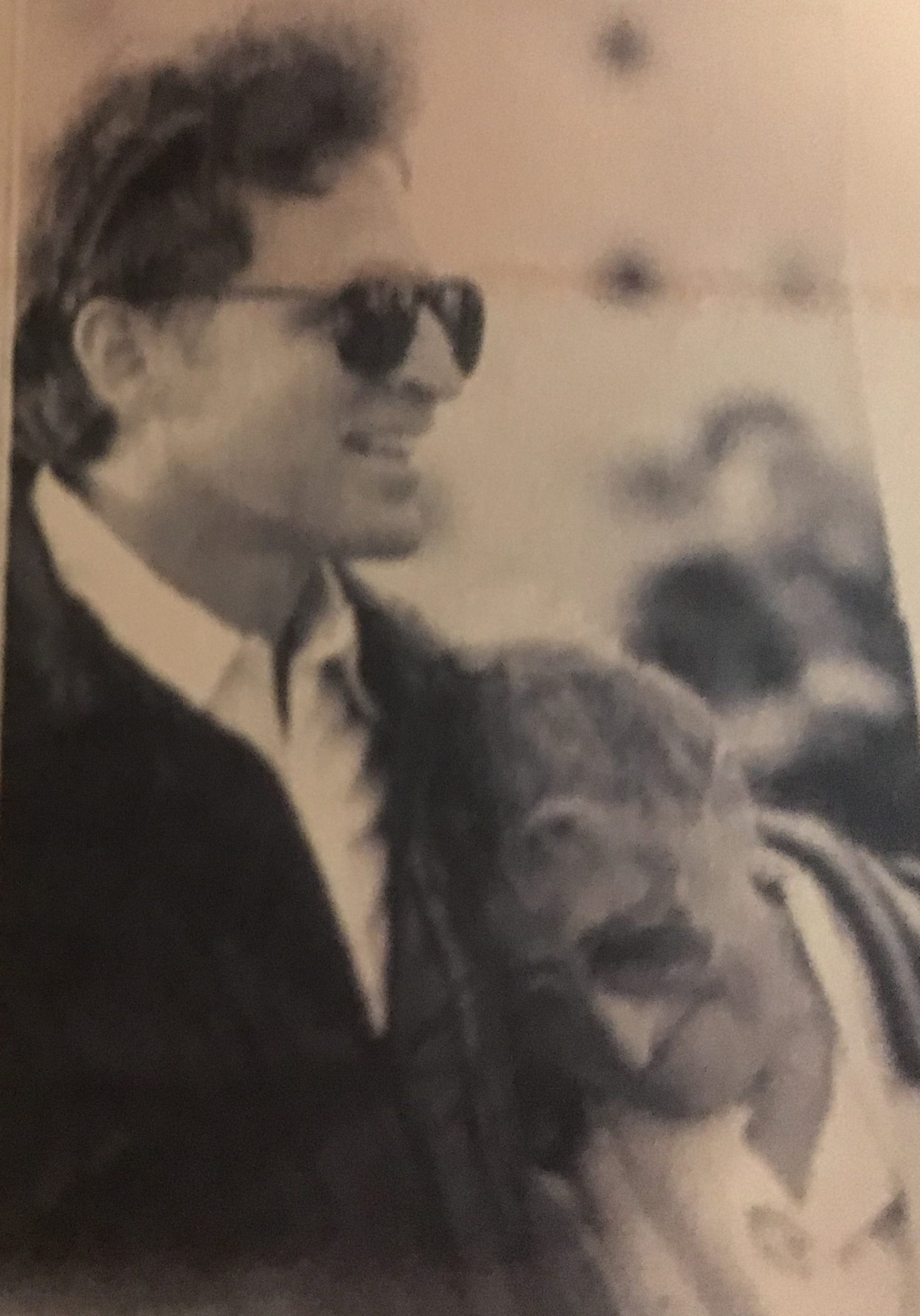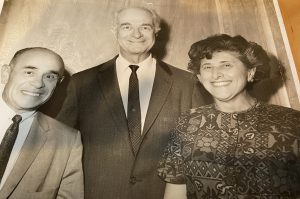
This was the command from my mother when I was in elementary school. The assignment in class was to speak about our family background. The kids awkwardly told stories about the origins of their grandparents in Ohio or somewhere in California, and then moved to their home in North Hollywood. Their stories were antiseptic, hagiographic, and very American. I knew nothing about my ancestry nor about the lives of my parents. Obeying her command, I wrote a summary of the Kagans in the terms of Laura Engels Wilder.
Her prohibition affected me and my brother, Bob. His adherence to her instruction led him to never divulge the life of his parents. When I visited him for at the hospital he worked at, his staff asked me if my brother had a family: “He never tells us about his personal life.” I told them to ask him themselves.
In short, both my brother and I were estranged from any sense of family values.
Only after my mother died leaving her autobiography did I learn of her history. Until then, Mother’s Day memories lay in the folds of an envelope addressed to Rose, my mother, and not much else.
After she died at the age of ninety-six, I read her 100-page handwritten autobiography. She recounted her childhood in the Russian held Ukraine which was threatened by pogroms, Germans, and Cossacks.
The Russians protected Jews from these enemies and the Communists offered them a better life than they had under the Czar.
I remember watching newsreels in our living room gloriously revealing Russian bombers taking off to targets in Germany. Only by reading her memoirs did I learn she was a communist.
A brilliant student, her curtailed her education, sent her off as a secretary. Ever since, she had felt squelched from a more creative life.
Rose did not want to marry or have children. After she married my father in Los Angles, she traveled back to Boston to make the announcement in the newspaper. And the picture was of her and her girlfriend.
During the anti-communist rage in America, my mother became frightened to reveal her background. She passed as an articulate woman who did not engage in Jewish activities or political action.
She wanted Bob and me to be doctors. He followed through. To her dismay I became a professor in Chinese studies. When I was awarded tenure with the title of full professor, she encouraged me to apply for medical school. Rose warned me to avoid using my title of Dr. because it would be confusing for the real thing.
Rose wrote in detail about her struggles with macular degeneration, financial losses from bad investment, loss of friends, and years in therapy. She did have some splendid experiences founding a Jewish theater in Fairfax, receiving recognition from the University of Judaism, traveling to Egypt, and working for the liberal Jewish Community Relations Center.
In her last 6 years, she had to move. Bob and Mickey, her stepson, though exceptionally rich with Bob living in a California mansion with a swimming pool, and with Mickey living in a European style villa in Hollywood refused to take care of her after she was twice robbed. My wife, Anna and I invited her to live in St. Paul.
She was glad to be safe in St. Paul but disliked Minnesotans, especially Jews. She often complained that she wishes she could still live with her Jewish friends in California.
Soon, her brain began to deteriorate–believing her nurses were stealing her toothpaste. Most revealing, she witnessed Cyrillic (Russian) writing on the walls. Rose died in her sleep.
I now have her urn in my study. I look at it often. I express my awe for her life’s encounters. I share with her my own history.
My Mother’s Day is not on a day or in a card.
Rose is with me in my study.




Thanx for your personal and very moving story about your mother and her long-kept secrets. I’m sure it’s not an uncommon family story.
My grandparents on both sides were East-European Jews who came to this country at the turn of the century. They were not as tight-lipped as your mother, but looking back I remember they spoke very little about their past lives, and to my regret I didn’t ask for more. Now those stories are gone.
A moving story of the way you choose to honor your mother, Richard. A brilliant woman who lived before she could fulfill her promise (this was true of so many women of her era), at least you came to know and appreciate her through the memoir she left you. Those were complicated times for immigrant, politically active women. Thank you for sharing her with us, now, in this more inclusive time.
This was an intriguing tale, Richard. A talented and politically engaged woman who was marginalized because of her gender, her history, and her stigmatized leftwing ideals. I would love to know what she found so annoying about the Jews of Minnesota! Too earnest, perhaps; too “Minnesota nice?” just like the goyim?
I’m glad you got some answers in that autobiography. I wonder if some day–and I hope I am not presuming too much as part of our community to broach this–you will feel that you have completed the task of getting to know her and honor her memory to the point that you can gracefully deposit her ashes in some final resting place, other than in your own private quarters.
I’m glad you were finally able to know about your mother’s history, and thus your own. I think many people of that generation, particularly those who experienced trauma, did not want to share the past with their children. This was especially true of my father-in-law, who died relatively young. It was only then that we discovered so many things he hid from his children about his family.
This was a very personal, revealing and ultimately sad family history; thanks for sharing it with us!
The part about Bob and Mickey washing their hands of Rose touched a nerve in me; my brother did the same, leaving me to help support our Mom by myself for years, to the tune of, conservatively, at least $25,000. It’s one reason why his recent death left me feeling nothing.